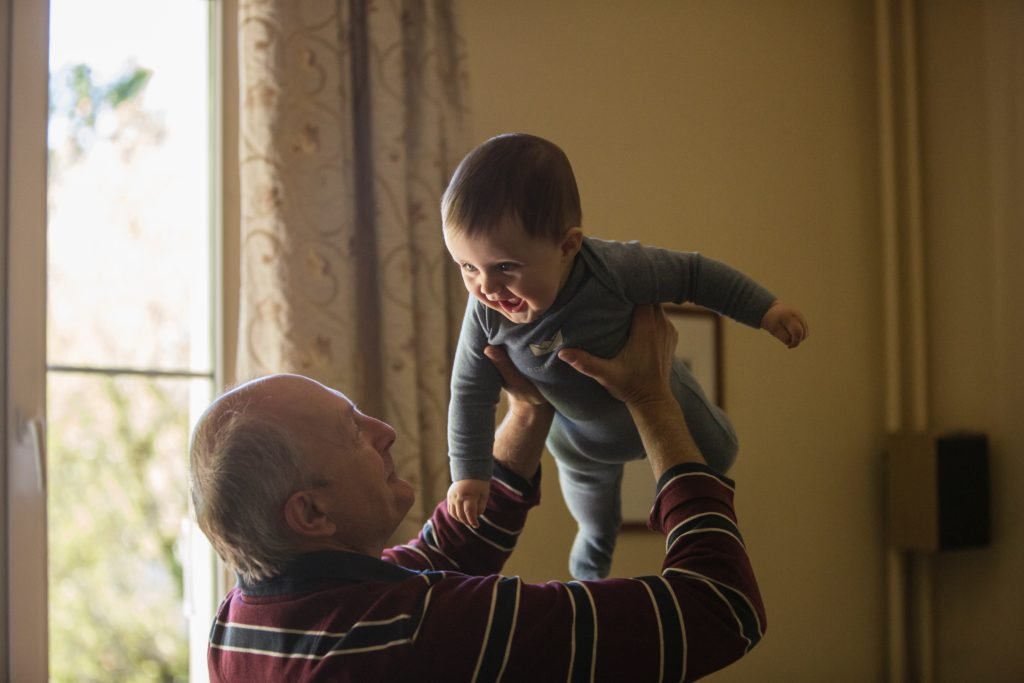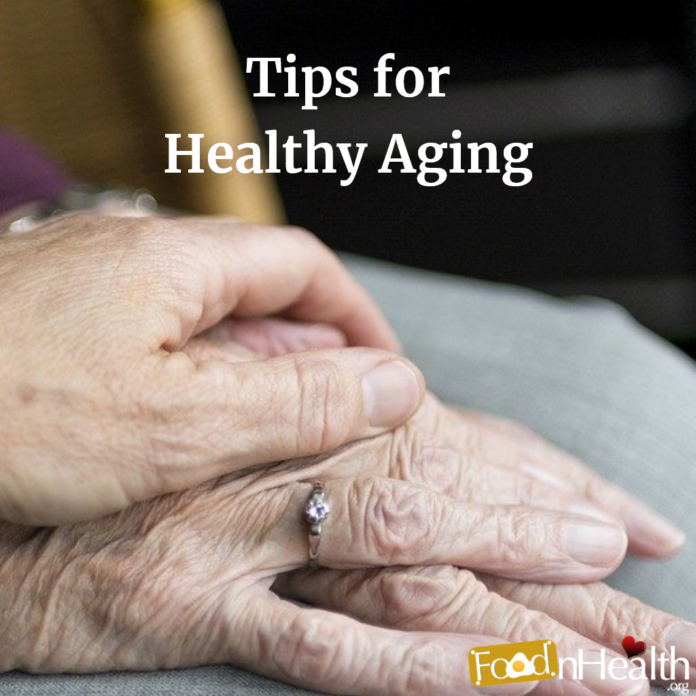None of us can stop the passage of time and as we grow older, our bodies go through many changes that are only normal. As normal as they are, probably all of us would rather delay the decline that comes with aging as much as we can.
While you cannot change your age, what you can certainly change is your lifestyle, and many small changes in your daily routine can greatly improve your quality of life in old age. When it comes to health problems, the key is always prevention, so you need to be informed and make healthy choices in all aspects of your life. Here are several tips for healthy aging so that you can live a fulfilled life well into old age.
Keep moving as much as you can
Staying active is constantly advocated as a prerequisite for a healthy body and healthy mind, and the same remains true as you step into your old age. Even if you were never the sporty type, it’s never too late to take up some kind of physical activity and improve your health in many ways.

Maintaining a healthy weight as you get older and stop going to work can be difficult. However, obesity is linked to a slew of health issues such as high blood pressure, heart disease, type 2 diabetes, sleep apnea and so on, which is why it is paramount not to let yourself go, even if your BMI is within the normal range. The body mass index is not always a reliable way to assess elderly individuals as it fails to take factors such as muscles into account.
But moving is recommended not only to fight excess weight and keep you fit; it also keeps your balance in check, strengthens your bones and muscles, and it even improves your mood. You can choose walking, riding your bike, swimming, taking a dance class, playing a sport or even doing work in your garden and it all counts. Everyone can find an activity that is suited to their capabilities, and if you are not sure what is best for you, you can always consult your doctor!
Follow a healthy diet
What we feed our bodies with is extremely important. You might have brushed this off in your youth, but as you age, the negative effects of unhealthy food get more and more apparent. Too much salt, for instance, could be detrimental to your health. While research is not entirely conclusive when it comes to this topic, most studies point out excess sodium to be bad news for your heart, kidney as well as bones. Cutting back on your daily sodium intake is thus a great start: the recommended intake is 1,500 milligrams at most.

In addition, elderly individuals need fewer calories on a daily basis but still have the same nutritional requirements, which means that you want to eat food packed with nutrients. Make your plate as colorful as you can with lots of vegetables. Eat plenty of fruit and frequent the whole foods aisle of your supermarket instead of getting processed foods. Cutting down on fatty meats is also a great idea.
A healthy diet will not only help you steer clear of obesity and protect your heart in the long term; it’s also an important part of prevention when it comes to diseases such as Alzheimer’s and Parkinson’s. Tweaking your diet so that you preserve your brain health should be a top priority.
Visit your doctor regularly
You might have gotten away with skipping a few doctor’s appointments when you were young, but now, it is in your best interest to keep your doctor as well as yourself updated on your health status. We already mentioned the critical importance of prevention, and the same applies here, too. Go to your yearly screenings to make sure you can act on time if anything requires attention, and get your yearly flu vaccine and wash your hands often.
When visiting your doctor, go prepared: make a list of your health concerns and of all the medications and supplements you are taking.
When it comes to your existing conditions, it’s important not to let them take control of your life. There is always a way to make life easier and more comfortable whatever the situation is. Denial will not get you far, and if you do not get the help you need, you will only aggravate the situation.
For instance, if you need to follow a special diet, you can leverage meal delivery services. If you cannot do your own grocery shopping, rest assured someone can help out with that. If your conditions require you to turn to in-home care services, look for a reliable nursing agency where you will be able to tailor the care to your particular needs and you won’t have to worry.
Make sure your brain stays active too
We already touched upon the topic of Alzheimer’s earlier and how important it is to feed our brains with all the nutrients it needs to work properly for a long time. Just in the United States, it is estimated that 5.8 million people live with this condition and the rates are only expected to rise in the future. But besides the food you eat, there are other things that you can do to ensure your brain health, too.

Make sure you engage your brain as often as you can; take up a new hobby, learn something new, do crossword puzzles or simply read a book. Arts such as playing an instrument, painting, writing, pottery as well as dancing are all great ways to slow down the aging process, as studies show!
Dancing is often pointed out as a win-win in all senses: it’s a great workout, as mentioned in the beginning, it’s a way to keep depression at bay and stay connected with other individuals while having fun, and the complex choreographies that you need to memorize keep your brain engaged, too.
Your lifestyle choices will hugely reflect in how you experience the aging process. It is important to think of our physical as well as mental health at any point in life, but as you step into your old age, it becomes ever so apparent. All of us are different and will notice these changes at a different rate, but what’s universally true is that we can all do little things to improve our lives and age in a healthier manner. Eating healthy, getting some physical exercise as well as a brain exercise and keeping our health needs in check are the pillars of healthy aging, so make sure you follow these tips to the best of your ability to enjoy a long and happy retirement.


























